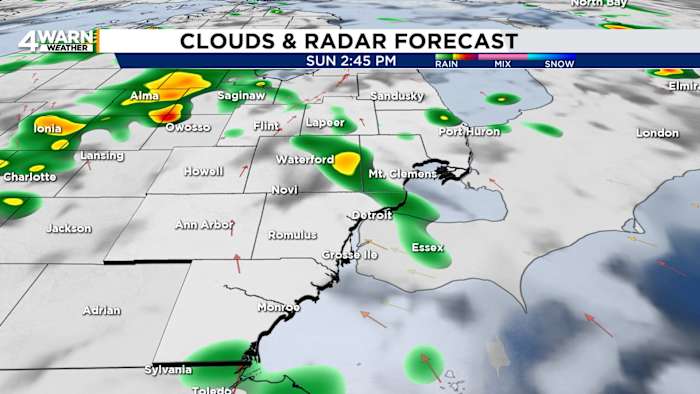Can Wales Lead the Way in Recycling Innovation?

Published: 2025-09-20 06:50:49 | Category: wales
Wales is on the brink of being recognised as the best recycling nation in the world, with new research highlighting the need for targeted efforts to tackle food waste. This initiative comes as the Welsh Government recommends further restrictions on general waste collection, allowing only one 60-litre black bag per week for non-recyclable waste.
Last updated: 27 October 2023 (BST)
- Wales is currently ranked second globally for recycling rates.
- New guidelines suggest limiting general waste to one 60-litre bag weekly.
- Food waste recycling could close the gap with Austria, the top recycling nation.
- Research indicates that up to 50% of general waste could be recycled.
- Local councils are implementing innovative solutions to improve recycling rates.
Understanding Wales' Recycling Landscape
Wales has made significant strides in recycling over the past few decades, largely attributed to the government's commitment to environmental sustainability. Recent studies conducted by WRAP Cymru reveal that Wales is just 0.4% behind Austria, the current leader in global recycling. With increasing pressure on households to manage waste effectively, the Welsh Government aims to transform Wales into a "zero-waste nation" by 2050, aspiring for a 100% recycling, composting, or reuse rate.
The Importance of Food Waste Management
One of the critical areas identified for improvement is food waste recycling. Bethan Davies from the Cymru yn Ailgylchu campaign emphasises that tackling this issue could save households money while propelling Wales to the top of the international recycling leaderboard. The statistics are compelling; if an additional 7,000 tonnes of food waste were recycled instead of being thrown into black bags, Wales could surpass Austria in recycling rates.
Food waste is a significant contributor to the overall waste problem. Research shows that 25% of the waste thrown away is food, with around 80% of that still edible. This presents a dual opportunity: reducing waste and addressing food insecurity in communities.
Current Practices in Waste Management
Wales has implemented robust measures to facilitate effective recycling. All councils collect food waste separately, which is then processed to generate renewable energy and create compost. Recent statistics indicate that around 60% of what is disposed of in the average black bag in Cardiff could have been recycled. This highlights the potential for improving recycling rates through better public awareness and behaviour modification.
Challenges and Opportunities
Despite the progress, some councils have struggled to reach the Welsh Government's target of recycling 70% of household waste by 2025. However, there has been a notable shift in practices, with councils like Cardiff prioritising recycling through funding and statutory targets. The recent push for less frequent general waste collection—only once every three to four weeks—has been met with mixed reactions from the public.
Davies notes that councils that have begun to collect general waste less frequently are witnessing improvements in their recycling rates. This suggests that when residents are encouraged to think critically about their waste disposal habits, they are more likely to recycle correctly.
Innovative Solutions and Community Engagement
Local councils are testing new initiatives to enhance recycling. For example, in the Vale of Glamorgan, the council is trialling door-to-door collection of soft plastics, which often end up in general waste. This pilot project aims to provide an alternative for residents, reducing the need for them to travel to supermarkets to recycle these materials.
Alex Bull, a Cardiff resident, has taken personal steps to improve her recycling habits. Describing herself as a "wishcycler," she has organised her kitchen to streamline the recycling process. By hanging bags for paper and cardboard on her cupboard door and separating her recycling bin into categories, she hopes to make recycling more manageable amidst her busy lifestyle.
Community and Government Collaboration
Public engagement plays a pivotal role in the success of recycling initiatives. Councils are actively involving residents in recycling education, as evidenced by Alex's experience at a recycling centre, where she was surprised by the amount of waste that could be recycled. This insight is vital for fostering a culture of sustainability and ensuring that everyone plays a part in reducing waste.
A spokesperson for the Welsh Government expressed pride in Wales’ recycling achievements, attributing the success to the collective efforts of the people of Wales. The government encourages ongoing participation and innovation in recycling practices to maintain and improve its global standing.
The Road Ahead: Goals and Expectations
Looking to the future, the Welsh Government has set ambitious targets, aiming for a significant increase in recycling rates. The current guidelines suggest that households should only require one 60-litre black bag for non-recyclable waste each week. Moreover, the government has encouraged councils to continue innovating in waste management to meet their targets.
As recycling practices evolve, the importance of community involvement and education cannot be overstated. Initiatives that focus on reducing food waste, improving recycling rates, and engaging residents in sustainable practices will be crucial in achieving Wales' long-term environmental goals.
Conclusion: The Importance of Collective Efforts
Wales is on the cusp of becoming a global leader in recycling, but the journey is far from over. Continuous efforts to educate the public, reduce food waste, and innovate recycling practices are essential. The success of these initiatives will depend on collective participation from both the government and residents alike. As Wales strives to be a zero-waste nation by 2050, every small effort contributes significantly to this monumental goal.
As we move forward, consider how you can improve your recycling habits and contribute to a more sustainable future. Could small changes in your daily routine lead to bigger impacts on our environment? #RecyclingWales #Sustainability #WasteManagement
FAQs
What is the recycling target for Wales by 2025?
Wales aims to recycle 70% of household waste by 2025 as part of its environmental sustainability goals.
How much food waste is currently recycled in Wales?
All councils in Wales collect food waste separately, which is processed to generate energy and compost, but there is still a substantial amount of edible food waste being disposed of incorrectly.
What can households do to improve recycling rates?
Households can make a significant impact by properly separating recyclables, reducing food waste, and participating in local recycling initiatives.
Why is food waste recycling important for Wales?
Tackling food waste not only reduces landfill burdens but also helps address food insecurity and can save households money.
What is a 'wishcycler'?
A 'wishcycler' is someone who hopes to recycle items but may not be sure if they are disposing of them correctly. Proper education and resources can help eliminate this confusion.



